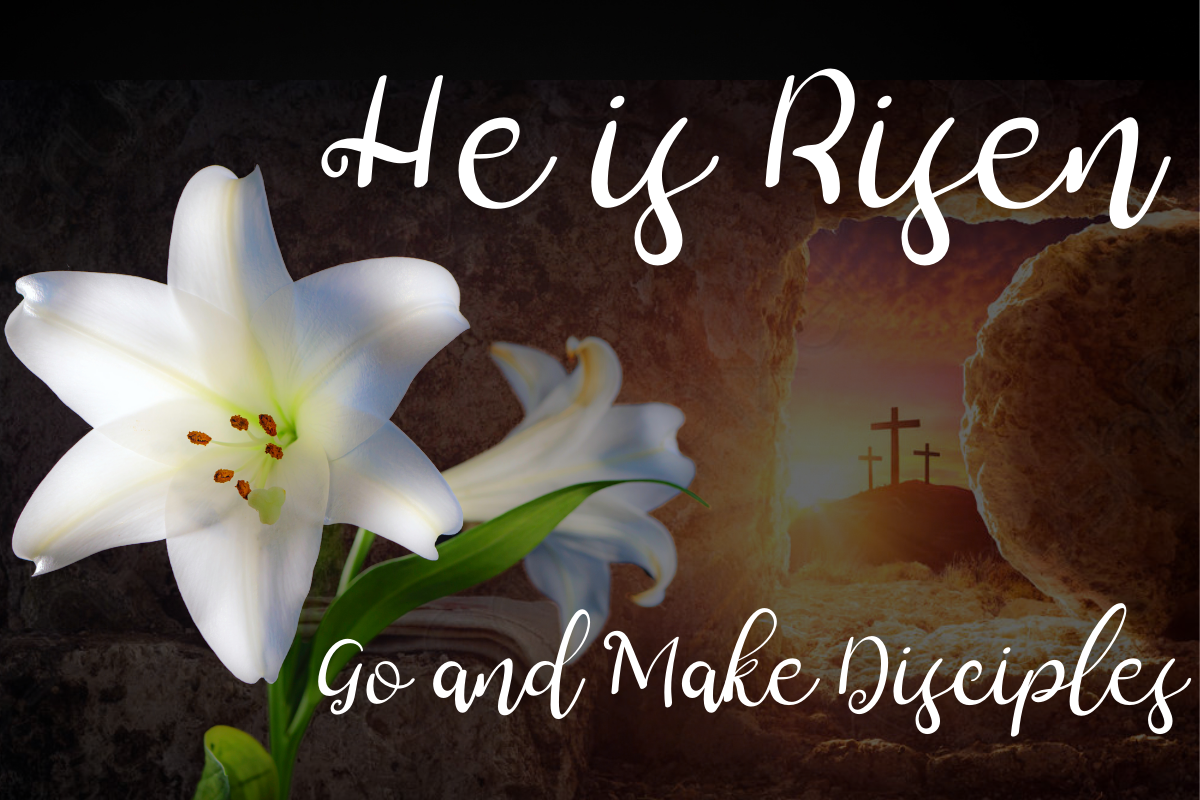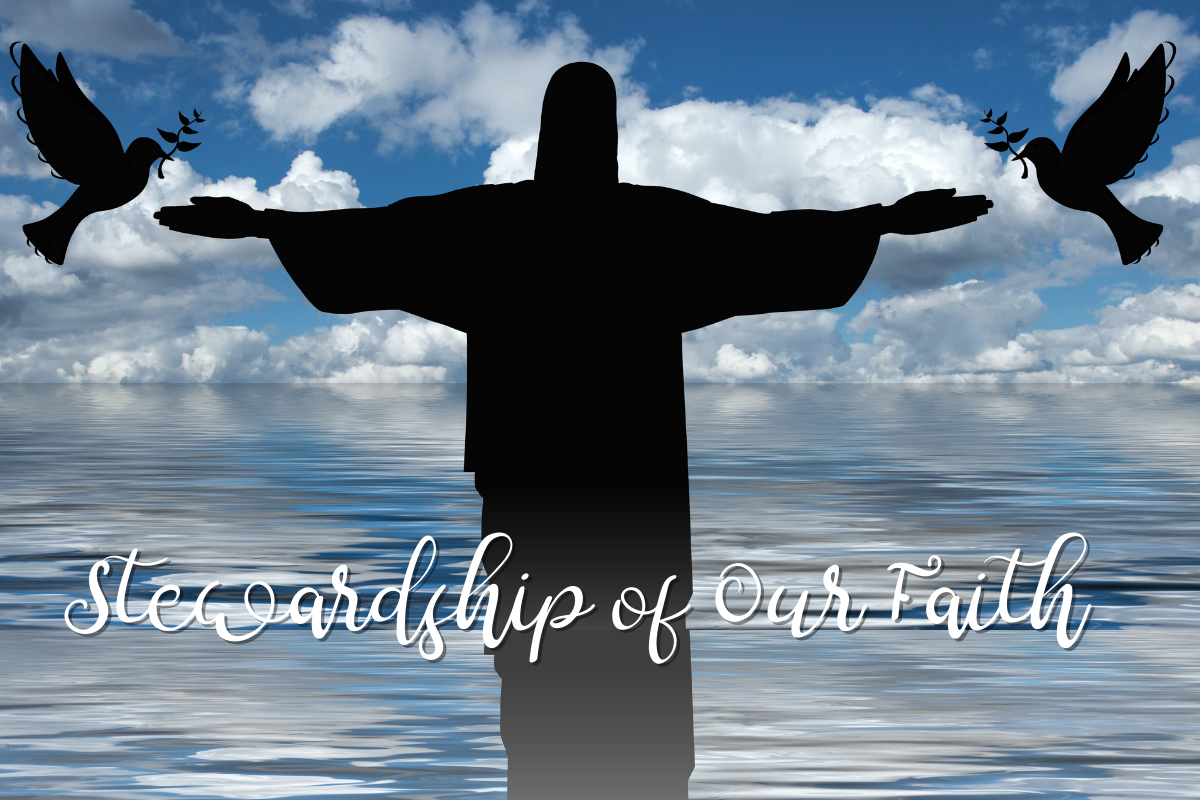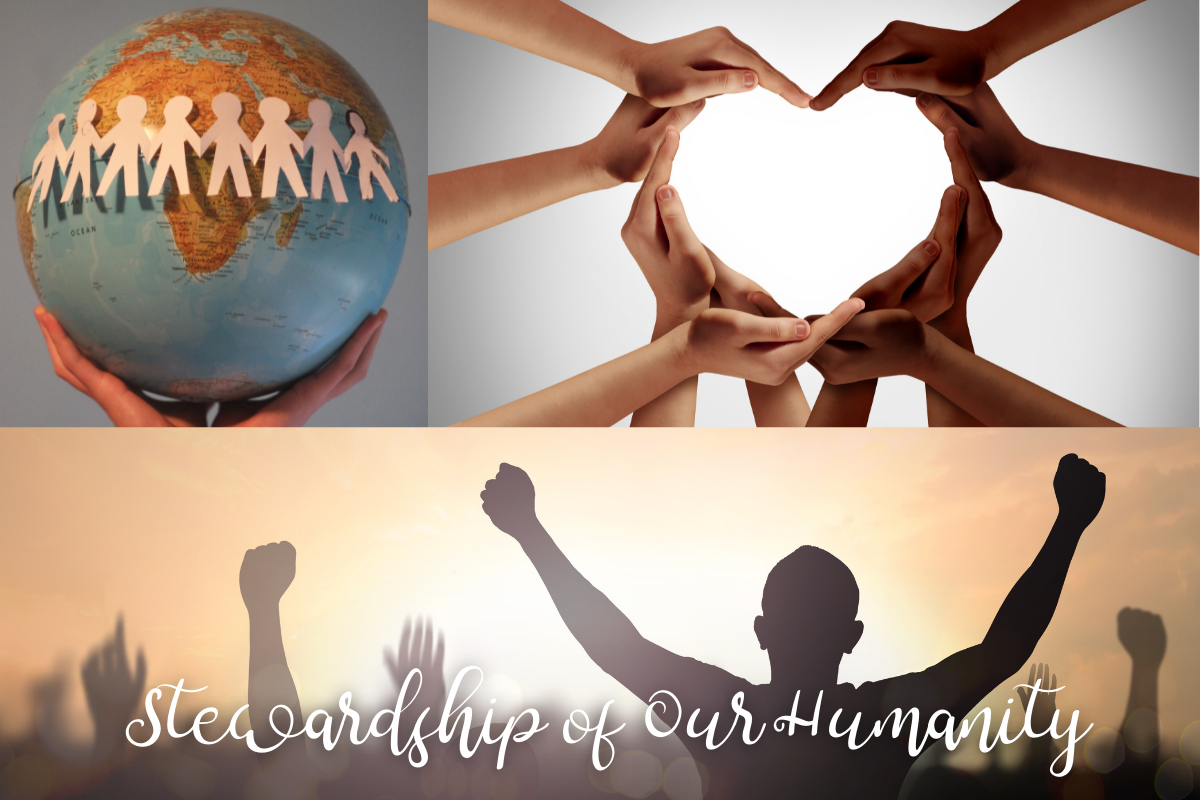Week Beginning April 24, 2022
Our Stewardship Journey
Over the past two months, we have been studying stewardship as a way of life. Good stewardship is not a destination. Rather, it is a pathway toward salvation and eternal life. Stewardship is our humble and thankful response as disciples of Christ. In the words of Hans Urs von Balthasar, “What you are is God’s gift to you, what you become is your gift to God.”
Stewardship is a collaborative process. We work lovingly with each other, using our God-given resources, guided by the Holy Spirit to benefit creation and advance the Kingdom of God.
Stewardship is a continuous conversion. Our formation is ongoing. Every day presents an opportunity for personal study and growth; every day presents an opportunity to share our learning and teach the Truth to others.
Through prayer and sacraments, we nurture our relationship with God, dispose our souls to receive His abundant graces, and grow in holiness. As our faith and trust in God increases, the fire of the Holy Spirit burns ever more brightly within us. We can shine that light to illuminate the way for others through our example and witness.
On this Sunday of Divine Mercy, let us try to imitate the loving mercy of Jesus Christ as we walk along his path. This week, seek occasions to demonstrate Christian kindness through hospitality, love in action through service, and mercy through forgiveness. As our Mass proclaims, “go in peace to love and serve the Lord.”
Week Beginning April 17, 2022
He Is Risen! Go and Make Disciples
This week, we rejoice in the sacred Paschal mystery which we recall every time we celebrate the Eucharist. Saint Pope John Paul II states in his 1994 Apostolic Letter Tertio Millennio Adveniente:
“…we can also appreciate more clearly the Gospel parable of the leaven (cf. Matthew 13:33): Christ, like a divine leaven, always and ever more fully penetrates the life of humanity, spreading the work of salvation accomplished in the Paschal Mystery. What is more, he embraces within his redemptive power the whole past history of the human race, beginning with the first Adam. The future also belongs to him: ‘Jesus Christ is the same yesterday and today and for ever’ (Hebrews 13:8). For her part the Church ‘seeks but a solitary goal: to carry forward the work of Christ himself under the lead of the Holy Spirit, the Paraclete. And Christ entered this world to give witness to the truth, to rescue and not to sit in judgment, to serve and not to be served’” (Chapter V).
In their Pastoral Letter on Stewardship, the United States Conference of Catholic Bishops explains this important communion:
“The Eucharist is the great sign and agent of this expansive communion of charity. ‘Because the loaf of bread is one, we, though many, are one body, for we all partake of the one loaf’ (1 Corinthians 10:17). Here people enjoy a unique union with Christ and, in him, with one another. Here his love—indeed, his very self—flows into his disciples and, through them and their practice of stewardship, to the entire human race. Here Jesus renews his covenant-forming act of perfect fidelity to God, while also making it possible for us to cooperate. In the Eucharist, Christians reaffirm their participation in the New Covenant; they give thanks to God for blessings received; and they strengthen their bonds of commitment to one another as members of the covenant community Jesus forms.”
Jesus and his followers, constituting a living community, become the temple not made with hands (Acts 7:48). The people, therefore, represent the early Church. Just as Jesus proclaims the Kingdom of God, the Church proclaims our Lord and Savior Jesus Christ. In our post-resurrection community, the proclaimer becomes the proclaimed. This institution is necessary for continued evangelization and communion with God. The risen Jesus is made present by the Church, with the community guided and perfected by the Holy Spirit.
“Then Jesus approached and said to them, ‘All power in heaven and on earth has been given to me. Go, therefore, and make disciples of all nations baptizing them in the name of the Father, and of the Son, and of the Holy Spirit, teaching them to observe all that I have commanded you. And behold, I am with you always, until the end of the age’” (Matthew 28:18-20).
All baptized people are universally qualified and individually called to proclaim the Kingdom of God. By virtue of the gifts bestowed to us by God, every Christian is “a witness and a living instrument of the mission of the Church itself” (Lumen Gentium, 1964, n. 33). Through our temporal vocations and social relationships, we are uniquely suited to serve the mission of the Church. Although our talents are diverse, they are united in their guidance by one Holy Spirit.
In Christifideles Laici, Pope John Paul II urgently pleads for the action of the lay faithful to combat changing affairs in both the Church as well as in social, economic, political, and cultural life. He makes the significant point that the parish is principally not a structure, territory, or a building but rather, “the family of God, a fellowship afire with a unifying spirit” (1988). With the grace of God, may we spark the flame that illuminates the world with the salvific charity and mercy of the Lord. “But you are ‘a chosen race, a royal priesthood, a holy nation, a people of his own, so that you may announce the praises’ of him who called you out of darkness into his wonderful light” (1 Peter 2:9).
We begin to evangelize by bearing witness to God and modeling a holy life. Our prayers, deeds, familial relationships, apostolic endeavors, and trials become spiritual offerings when joined with the supreme sacrifice of Jesus Christ. In such a way, our charisms benefit society and our actions contribute to the sanctification of the world.
In a spirit of mutual cooperation and united by divine grace, all of the People of God enter into this world to serve and not to be served. We strive to perfect our collective holiness, and we live with charity for each other and ultimate love for God. Only by serving in communion with one another under the guidance of the Holy Spirit can we perpetuate the message of Christ and promote integral salvation for all of humanity.
Today, we celebrate that Jesus Christ is risen. Your assignment this week is to follow the instructions of the risen Christ and go make disciples. Use your gifts to reveal the face of God to others and to advance His Kingdom. Happy Easter!
Week Beginning April 10, 2022
Be a Good Steward of Our Faith
Jesus forms his ministry of loving service and instructs his disciples that their love for one another is indicative of this ministry (John 13:34-35). In the Gospel, Saint John discloses how God’s love permeates Christian life:
“Beloved, let us love one another, because love is of God; everyone who loves is begotten by God and knows God. Whoever is without love does not know God, for God is love. In this way the love of God was revealed to us: God sent his only Son into the world so that we might have life through him. In this is love: not that we have loved God, but that He loved us and sent His Son as expiation for our sins. Beloved, if God so loved us, we also must love one another. No one has ever seen God. Yet, if we love one another, God remains in us, and His love is brought to perfection in us” (1 John 4:7-12).
This passage is particularly enlightening, because it explains the dynamic correlation between our loving relationship with God and our imperative to love one another. Pope Benedict XVI described “a double dimension: the vertical (communion with God) and the horizontal (communion among men)” with respect to the concept of communion as a key to ecclesiology (Congregation for the Doctrine of the Faith, 1992).
Applying that same “double dimension” to our call to love, our vertical axis is formed when God sends His loving mercy and divine grace down to us. We reciprocate by offering up all that we have including our love for Him. Horizontally, we engage in benevolent communion with others as we freely exchange love, perform good deeds, grant forgiveness, and live in harmony with the world. To be Christian and live as God intended, we strengthen our relationships along both axes through our charitable actions.
To form a stable cross–our symbol of Christianity–the stipe and patibulum must both remain strong and balanced. On the crucifix, Jesus hangs at the intersection of the two beams. In such a way, he connects humanity to divinity. As the Word Incarnate, Jesus brings God to us; through his Passion, death, and resurrection, Jesus brings us to God. On that dark night of faith hanging on the cross, Jesus exhibits his unwavering love for God and man and sets the ultimate example of how to love.
Flowing directly from that love is a devotion to service: “the Son of Man did not come to be served but to serve and to give his life as a ransom for many” (Mark 10:45, Matthew 20:28). His ultimate service in the face of death, which exemplifies his complete and selfless love, is to sacrifice his own life for our salvation. Here, service also crosses vertically to God and horizontally to each other.
The many charisms that are prominent in the teaching of Jesus proceed out of this underlying foundation of love and service. Together, they comprise the essential elements that define the nature of his Church.
As followers of Jesus, we become adopted children of the Divine Father and experience the unearned gift of His unconditional love. Following Jesus means giving selflessly back to God everything he gives to us. In order to love and serve God and to do His will, we are called to sacrifice for the benefit of others. But now, our sacrifices are made in union with a compassionate God who reaches out His invisible hand to guide and comfort His children through troubled times.
Our faith blesses us with hope knowing that every cross brings grace when freely offered to God. This Holy Week, please reflect on Christ’s Passion, death, and resurrection. Consider how his victory on the cross is shared with us as a remedy for our sin and a path for our eternal salvation. Can others recognize you as a disciple of Christ through your words and deeds? How are you trusting your faith and the Holy Spirit to guide you?
Best wishes to you and your loved ones as we celebrate Holy Week!
Week Beginning April 3, 2022
Be a Good Steward of Our Humanity
“Then the Lord God formed the man out of the dust of the ground and blew into his nostrils the breath of life, and the man became a living being” (Genesis 2:7). Created in His divine image and likeness, we share a unique bond with God to cooperate in caring for each other. Blessed with the indwelling of the Holy Spirit, we treat our bodies and each other as temples of God. We are called to nurture and cherish life from beginning to end.
God loves us so much that he sends His only Son to provide us with a path toward redemption and salvation. As the Word made flesh, Jesus becomes a living, breathing role model for humanity. He teaches us how to communicate with God through prayer. He shows us how to properly order our lives away from worldly goods and power with an emphasis toward God. He proves to us through his miracles that with faith in God, anything is possible. He exhibits how to withstand hardships and explains that God endures them with us. He demonstrates how we should treat one another with love and respect, how we should live our lives simply and modestly, and how we should always serve with compassion. The Second Vatican Council reminds us:
“The Word of God, through whom all things were made, became man and dwelt among us, a perfect man, he entered world history, taking that history into himself and recapitulating it. He reveals to us that ‘God is love’ (1 John 4:8) and at the same time teaches that the fundamental law of human perfection, and consequently of the transformation of the world, is the new commandment of love. He assures those who trust in the charity of God that the way of love is open to all and that the effort to establish a universal communion will not be in vain” (Gaudium et Spes, no. 38).
Jesus Christ begins his earthly ministry by shepherding a flock of “lost sheep” that includes tax collectors and prostitutes. “Those who are well do not need a physician, but the sick do. I did not come to call the righteous but sinners” (Mark 2:17). As our Divine Physician, he comes to heal the souls of those who need his mercy, not those who are spiritually healthy. He illustrates that even scribes, Pharisees, and nobles need forgiveness. As we journey together, let us try to emulate the hospitality Our Lord shows to the least of our brothers and to us. Let us strive to serve as he does without judgement or discrimination. Let us be quick to confess and to forgive. God’s mercy is intended to make saints out of sinners–all we have to do is ask.
This week, reflect upon and embrace the qualities that make us human, such as our ability to love, our compassion, and our creativity. Recognize our strengths and our vulnerabilities as gifts that enable each of us to give and also require each of us to take. Through our relationships, we are able to develop our talents by serving one another. How can you use your unique human qualities to care for creation?




